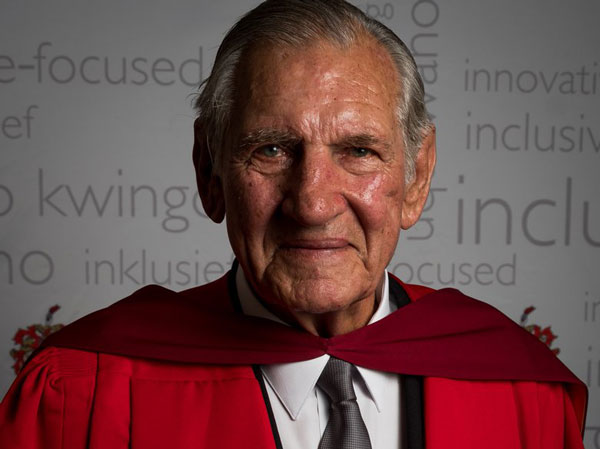
Nothing to show for Tses Glass
After the groundbreaking ceremony of the Tses Glass factory in June last year, project founder Simon Kapenda is having a hard time proving that investors are queuing up for a stake in the envisioned glass factory.
The Economist visited Tses in the //Karas Region, the intended location for a multi-billion dollar project in which Kapenda claims government has invested or plans to invest N$800 million in the form of a 10 % equity deal for a glass factory.
Kapenda who heads the so-called Groot Group of companies is persuading investors to develop Tses Glass. This week however Kapenda refused to comment on the state of the said government equity deal or any foreign investment.
Initially in an interview with the Economist last year, Kapenda said that construction was scheduled to start on 01 October 2014 with completion expected a year later with plans to commission the factory in November this year.
However on visiting the site location for Tses Glass, little could be seen to prove Kapenda’s dreams as fact. A mandatory construction sign stating the construction project and the client stands erected at the government’s surrounding Targeted Intervention Programme for Employment and Economic Growth (TIPEEG) projects but not at the groundbreaking site for Tses Glass. In fact, Tses residents could not accurately pinpoint the site where the groundbreaking took place a year earlier, despite Kapenda supplying a photograph showing various officials attending the ceremony.
The extant Tses projects show the N$18 million which was allocated to the Tses Village Council for servicing the land for water reticulation and sewerage.
“Before you see the laying of bricks on our site location, there are steps that must be taken. It usually takes many years to plan and execute capital projects such as Tses Glass. It has taken Ohorongo Cement something like 19 years or so but it took Tses Glass only 3 years from Mid 2012 to now, for us to be a shovel ready project.” Kapenda said.
Several dignitaries such as the Deputy Minister of Veterans’ Affairs, Hon Hilma Nicanor, Lucia Basson (Special Adviser to the Karas Governor); Hon Brian Gaoseb (Chairperson of Tses Village Council and Chairman of Tses Glass attended the groundbreaking held on 14 June 2014.
Kapenda also could not verify whether the project management company, Germany-based ghs|glass and production company, Italy-based Olivotto were still on board. The construction of the Tses Glass float glass factory by Sorg, another Germany-based company was also expected to reach completion earlier this year. Heye International was also mentioned as the main supplier of machinery for the factory.
“Currently, our focus is to get our EIA finalised and certified so we can submit it to our Honorable Governor together with the above stated documents so we can get our green light from our central government and re-assume our masonry training programme to finish it and get started with our civil works.” Kapenda added.
The company also awarded a 15-year contract to Hakahana Industries, a claimed industrial company formed by the community of Hakahana in Windhoek to develop, market, and manufacture industrial products for agriculture. Hakahana Industries were also to supply silica sand for the Tses Glass factory in Tses. Hakahana’s contract, however, was cancelled in favour of a newly formed company under Groot Group, according to Kapenda when the Economist spoke to him last week.
This week Kapenda said that he has been travelling frequently since January this year to Europe to work with a team to complete the bill of quantities as well as select general contractors and civil engineering partners for the construction of the glass factory.
Kapenda said without going into detail that two companies from Ukraine will act as general contractors and civil engineering partners and some companies from Italy will be the technical consultants and work with the German technical partners.
Tses Glass plans to have an annual gross production capacity of 20 million net tons of glass and expects to create more than 40,000 new direct and indirect jobs within three years, all claims Kapenda made a year ago.










































